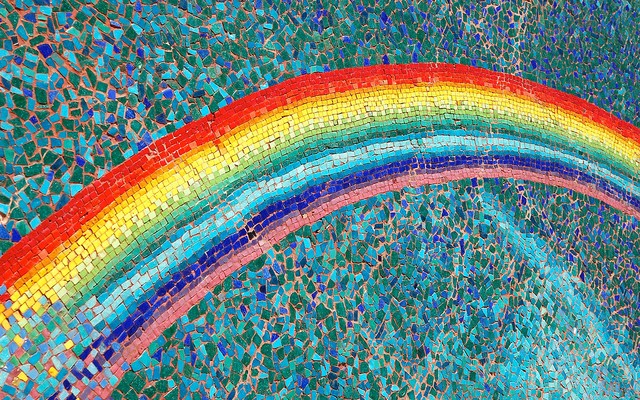‘Settling on a shortlist, let alone a winner, from nearly 1000 poems is an unsettling task,’ note judges of the 2017 Overland Judith Wright Poetry Prize, Ali Cobby Eckermann and Toby Fitch. ‘Devoid of author names, bios and achievements (blind judging) the usual context for reading a poem is stripped back to the poem alone – yet this is liberating, too, even as it takes time for poems (and their voices) to emerge from the screaming morass of submissions and anxiety of decision-making.’
Between early December and early February, the judges narrowed nearly 1000 poems down to twenty-one ‘distinctive poems’. Over this period, they compared ‘desires for poems that combine content and form, politics and play, music and feeling’, and came up with a shortlist that reflected a broad range of voices and poetics, as well as a list of the following Highly Commended entries:
‘Conglomerate’ – Emily Stewart
‘morning on some continents’ – Ella Jeffery
‘Even joy has its coordinates’ – Isi Unikowski
‘Overhead Transparency’ – Mitchell Welch
‘exit’ – Gareth Morgan
‘Sestina for a Memory of Work’ – Elena Gomez
‘Hot Clouds’ – Louise Carter
‘Search Results’ – Andrew Last
‘Blue Tongue’ – Adam Stokell
‘Alessandra’ – Nadia Kim
‘Death Valley’ – Myles Gough
‘Innumerable ones’ – Aden Rolfe
Of the shortlist, Eckermann and Fitch write that they were poems that ‘would eventually not let themselves be forgotten’:
from the gently felt muscle memory of Stacey Teague’s ‘whero’ (‘you begin to cocoon into / the spaces around things’) to a sense of insignificance, both environmentally and personally, in Mia Slater’s ‘Music for a season moving’ (‘here come the mountains / the waves / the columns of sand and roses’); from the moon-shaped music of Bronwyn Lovell’s ‘Moon’ ‘would eventually not let themselves be forgotten’(‘sunsets as pink purple / as the pinch I inflict’) to the feminist moths of Zenobia Frost’s ‘Lepidopera’ (‘kinkier, the cabbage moth keeps every crust; / inside her: teeth and acid, and the husks / of what men just as bright before you left behind’); from the streaming of linguistic nuggets in Alex Griffin’s ‘The Love My Way Variations’ (‘I am screen brightness. / Look at me, look at me. Time sloughs in slack webs’) to the elegiac streams of Raelee Lancaster’s ‘Styx: a series of diary entries’ (‘sky blurs into sea / sea into storm / storm into eyes / our eyes / silent eyes / that swim’).
Now, Overland and the Malcolm Robertson Foundation are pleased to announce that ‘Guarded by birds’ by Evelyn Araluen has placed first in the 2017 competition, followed by Rae White’s ‘what even r you?’, with third place going to Evelyn Araluen’s other shortlisted poem, ‘Dropbear poetics’.
‘Three poems had to be singled out for the “podium”, and yet all three could have won,’ Eckermann and Fitch note.
Third-placed ‘Dropbear Poetics’ by Evelyn Araluen is a violent yet droll surprise attack on quote-unquote ‘Australian’ poetry of land, of white appropriation of Aboriginal culture – a uniquely powerful poem. Second-placed ‘what even r u?’ by Rae White is insistent in its breaking down of binaries (gendered in particular but also linguistic, via puns and inversions) while expressing admirable patience in the face of intolerance and abuse. First-placed ‘Guarded by Birds’, also by Evelyn Araluen, crept up on both Ali and I – it is an outstanding evocation of grief caused by suicide and a deeply felt exploration of Indigenous ceremony. Its final lines are subtle, tenuous, open, and a letting go.
Congratulations to the winning, shortlisted and commended poets!
First place
‘Guarded by Birds’ – Evelyn Araluen
‘Guarded by Birds’ is an attempt to find shared language and ceremony to confront the cultural implications of suicide and mourning.
Evelyn Araluen is a teacher and researcher working in Indigenous literatures at the University of Sydney. In 2017 she was the winner of the Nakata Brophy Prize for Young Indigenous Writers. Born, raised, and writing in Dharug country, she is a descendant of the Bundjalung nation.
Second place
‘what even r u?’ – Rae White
‘what even r you?’ is about the discrimination and intolerance that the poet and their non-binary siblings so often face, and the exhaustion and sadness it can cause them.
Rae White is a non-binary poet and writer living in Brisbane. Their poetry has been published in Meanjin Quarterly, Cordite Poetry Review and others. Rae’s manuscript Milk Teeth won the 2017 Arts Queensland Thomas Shapcott Poetry Prize and will be published by University of Queensland Press in 2018.
Third place
‘Dropbear Poetics’ – Evelyn Araluen
‘Dropbear Poetics’ is a threat against the swallowing of Aboriginal culture and languages in Australian literature.
Bio as above.
You can read the detailed judges’ report, along with ‘Guarded by birds’, ‘what even r u?’ and ‘Dropbear poetics’ in Overland 230, which will be out in late March.
 The Judith Wright Poetry Prize is supported by the Malcolm Robertson Foundation
The Judith Wright Poetry Prize is supported by the Malcolm Robertson Foundation





